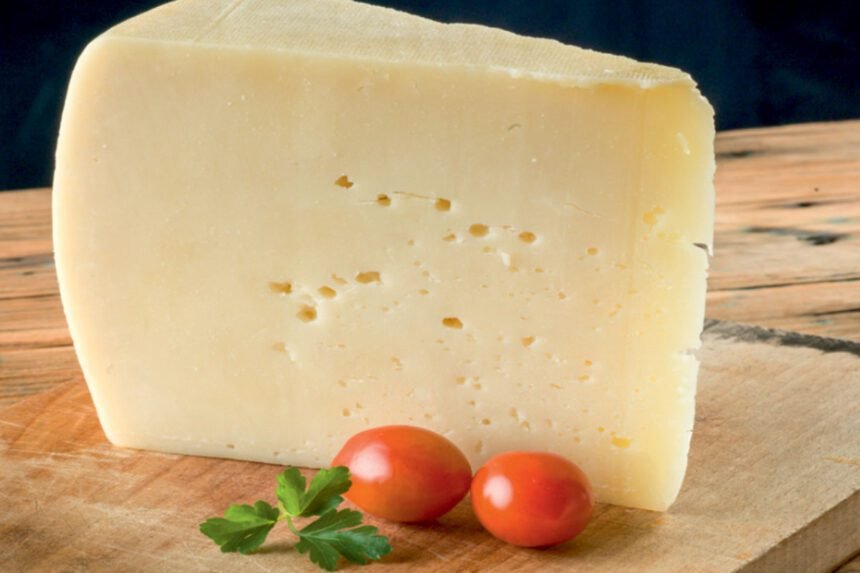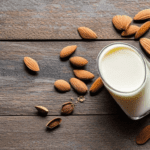As someone who loves cheese but is lactose intolerant, finding a good cheese substitute has been a game changer. With the rise of veganism and plant-based diets, the demand for dairy-free cheese options has also increased. Luckily, there are now many cheese substitute options available on the market.

One popular cheese substitute is made from nuts, such as cashews or almonds. These cheeses are often made by blending soaked nuts with water, lemon juice, and seasonings to create a creamy, tangy spread. Another option is cheese made from soy or other plant-based proteins, which can be melted and used in recipes just like traditional cheese.
For those who are vegan or have dairy allergies, cheese substitutes are a great way to still enjoy the flavor and texture of cheese without any negative health effects. And for those who are simply looking to reduce their dairy intake, cheese substitutes can be a delicious and healthy alternative.
Types of Cheese Substitutes

As a vegan, I have tried and tested various cheese substitutes over the years. Here are some of the most popular types of cheese substitutes that I have come across:
Nut-Based Cheeses
Nut-based cheeses are a popular choice among vegans as they offer a rich and creamy texture. Cashew cheese and almond cheese are two of the most popular nut-based cheeses. Cashew cheese is made by blending soaked cashews with nutritional yeast, lemon juice, and salt. Almond cheese is made by blending soaked almonds with nutritional yeast, garlic, and salt. These cheeses are perfect for spreading on crackers or using as a dip.
Soy and Legume-Based Cheeses
Soy and legume-based cheeses are another popular choice among vegans. Tofu is a versatile ingredient that can be used to make a variety of cheese substitutes. It can be crumbled and used as a feta cheese substitute or blended with nutritional yeast and herbs to make a cream cheese substitute. Other legumes such as chickpeas and black beans can also be used to make cheese substitutes.
Vegetable-Based Cheeses
Vegetable-based cheeses are a great option for those who want to add more vegetables to their diet. Sweet potato and zucchini cheese are two popular vegetable-based cheeses. Sweet potato cheese is made by blending cooked sweet potato with nutritional yeast, garlic, and salt. Zucchini cheese is made by blending cooked zucchini with nutritional yeast, lemon juice, and salt.
Root-Based Cheeses
Root-based cheeses are another great option for those who want to add more vegetables to their diet. Tahini spread is a popular root-based cheese substitute. It is made by blending tahini with lemon juice, garlic, and salt. This spread is perfect for using as a dip or spread on sandwiches.
Overall, there are many different types of cheese substitutes available for vegans. Whether you prefer nut-based, soy and legume-based, vegetable-based, or root-based cheeses, there is something for everyone. Experimenting with different types of cheese substitutes can be a fun and delicious way to add more variety to your diet.
Using Cheese Substitutes in Cooking

As a cheese substitute enthusiast, I have experimented with various substitutes in different dishes. Here are some tips and tricks I’ve learned along the way.
Melting and Texture
One of the biggest challenges with cheese substitutes is achieving the right melting and texture. Some substitutes, like tofu or hummus, have a creamier texture and are better suited for dips or spreads. Others, like vegan cheese shreds, can be melted and used in dishes like pizza or nachos.
When melting cheese substitutes, it’s important to keep in mind that they may not melt the same way as dairy cheese. Some substitutes may require a longer cooking time or a higher temperature to achieve the desired texture.
Flavor Pairings
Cheese substitutes come in a variety of flavors, from cheddar to mozzarella to feta. When using a cheese substitute in cooking, it’s important to pair it with the right flavors to enhance the dish.
For example, a vegan cheddar substitute may work well in a vegan mac and cheese dish, while a vegan parmesan substitute may be better suited for sprinkling on top of a salad.
Health and Nutritional Benefits
Cheese substitutes can be a great option for those looking to reduce their dairy intake or follow a plant-based diet. Many substitutes are fortified with B vitamins and other nutrients.
Additionally, cheese substitutes can be a good option for those with lactose intolerance or dairy allergies. However, it’s important to check the ingredients list for any potential allergens.
Overall, cheese substitutes can be a versatile and tasty addition to many dishes. With a little experimentation and creativity, you can find the perfect substitute for your favorite cheesy recipes.



